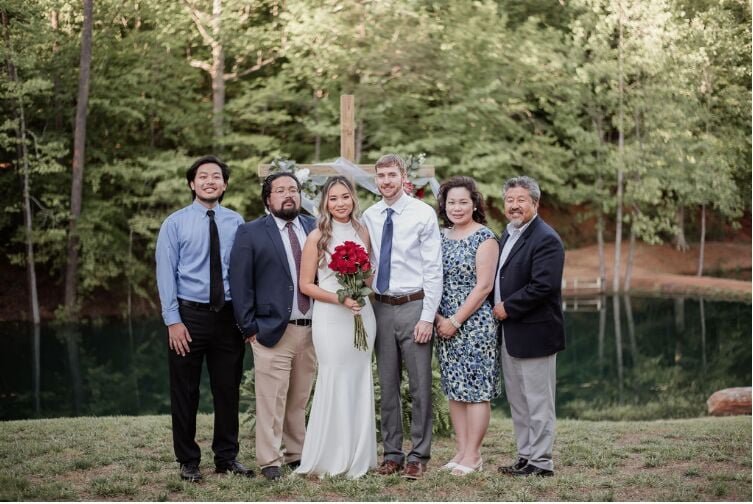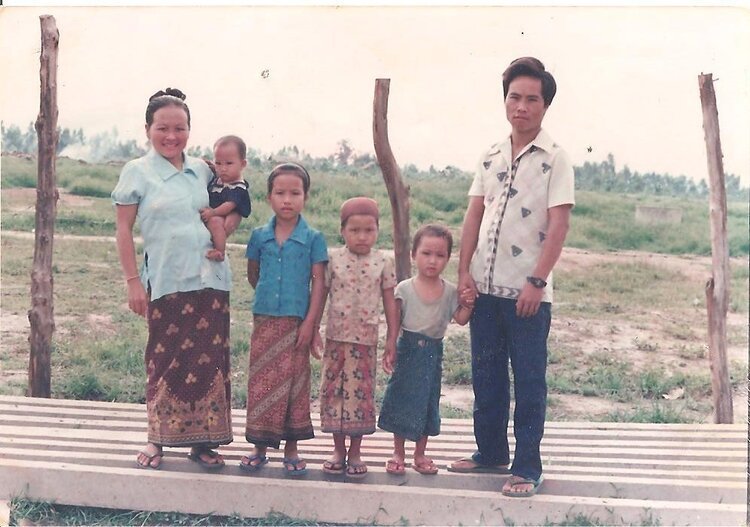North Carolina Elections & Asian Americans
“Home in a New Place: Making Laos in Morganton, North Carolina” MA thesis project by Katy Clune, completed for the Folklore Program, Department of American Studies at the University of North Carolina-Chapel Hill in May 2015.
'This is life': In North Carolina mountains, Hmong refugees grow rice, uphold food sovereignty by Mackensy Lunsford Sept. 30, 2021
A new life in the `land of opportunity'. Relocated Hmong refugees make a home for themselves in rural North Carolina, by Nancy Herndon June 11, 1987
Catawba County Programs Receive National & State Awards by Rob Eastwood, September 14, 2022
Finding Refuge: Hmong mountain people embrace a new home
By Leslie D. McKesson
Published in the Morganton News Herald, Aug 22, 2020; Updated Sep 27, 2021
Burke County is the picture of geographic diversity. Few places offer mountains and (lake) beaches, and it’s not everywhere that landscape lovers can cultivate Mountain Laurel and Banana Plants in the same back yard. These are some of the things that make us “Nature’s Playground,” but they are only part of what makes Burke County diverse.
Equally important is our ethnic diversity. Families representing many cultures, including the Hmong, have come to call Burke County home. Rich stories, histories and traditions add to what defines our area, our beliefs, and our people, like the story of the Lo family.
Tou and May Lo and their two small children fled their mountain village in Laos in the mid-1970s. They and many others set out on a perilous journey to escape the political upheaval, violence and persecution of the Vietnam War’s “Secret War.” As they sought sanctuary from the bombing and destruction of their homeland, many Hmong lost their lives or their loved ones to the war.
The Secret War was an integral but covert part of the war in Vietnam. The Central Intelligence Agency recruited soldiers among the Hmong clans living in the mountains above Laos to fight the encroaching Communist threat from North Vietnam, believing that Communism would spread to southeast Asia if Laos fell. The Hmong were a hill tribe and the Lao were a distinct people, with their own identity and culture, who occupied the lowlands.
In their native lands the Hmong raised large families to run their farms, and most families can point to a member who was involved or lost in the Secret War. When Tou’s brother died in the war, his children remembered their father’s funeral and the beautiful artificial flowers he received. They had never seen flowers that lasted so long. The children immigrated to America to be raised by relatives after his death. As the war neared an end, Tou’s family began their own difficult and dangerous journey to America.
Thailand was the first stop. Because Thailand had remained neutral during the war, it was dangerous for anyone who was involved in the war to seek refuge there. Tou had provided for his family during the war by working for the U.S. as a “kicker,” kicking bags of rice from a plane to farmers below whose livelihoods were devastated by the war. The danger was clear, but Tou knew that getting to Thailand’s Ban Vinai refugee camp was his family’s only solution.
The camp was strictly guarded like a prison camp, but once they were there Tou found farm work on the outside. Near the end of their two and one-half year stay at Ban Vinai, a third child named Davee was born. Tou’s work brought in enough money to buy a little baby formula for Davee, but she was thin and malnourished despite her parents’ best efforts. Davee was taking her first steps as the family packed all their possessions into one half-filled suitcase to travel south to Bangkok and immigrate to America.
Already gaunt and sickly, Davee was weakened by the difficult journey. She had to stay in her parents’ arms during their travels and was completely unable to walk by the time the family arrived for their first American resettlement at the home of her maternal aunt in Ann Arbor, Michigan. May and her sister nourished Davee to health and massaged her legs until she learned to walk again.
Hmong society is formed around 18 patriarchal clans that venerate the fathers, brothers and sons, so when the women marry, they become part of their husband’s clan rather than the clan of their birth. After several months in Ann Arbor with May’s sister and family, Tou moved his family to St. Paul, Minnesota. His brother and other relatives were settled there, and First Covenant Church sponsored Tou’s family. They lived in public housing that was unsafe for five years, then decided to leave the big city.
The mountains of western North Carolina are similar to the hills of their homeland, and a small population of Hmong were living in Marion, Morganton and Hickory. In 1984 Tou found a job in Morganton and relocated his family to Burke County. Without formal education and speaking limited English, Tou learned computer numerical control machining and May worked at a textile factory. With hard work the family moved from public housing into a private home in Glen Alpine. Davee interpreted for her parent/teacher conferences throughout her youth, inspiring her to become an English as a Second Language teacher.
Tou, May and their children escaped the devastation of the Secret War strengthened by a faith built on ancestor worship. Later converting to Christianity, Davee is married to Pao Ly, pastor of First Hmong Baptist Church of Morganton, and they have three children. Tou and May still live in Morganton, and along with their daughter and son-in-law, they are part of a thriving Hmong community that chose Burke County to be their new home. Speaking of her family, Davee says “we are so grateful to be here in America.”














